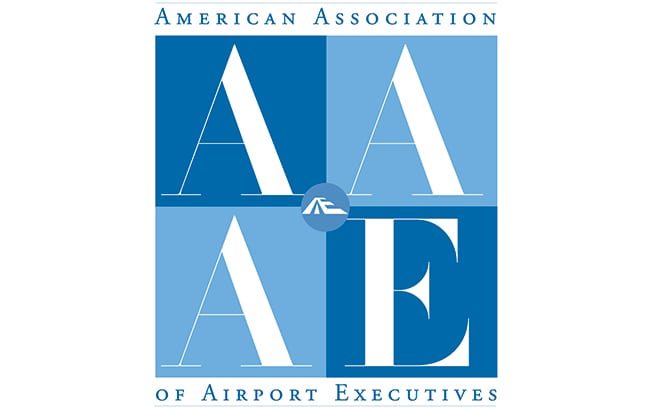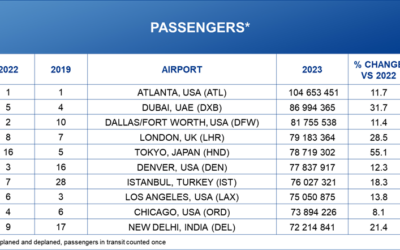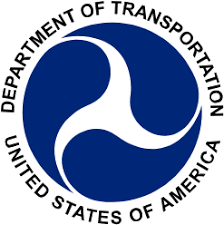There is some “movement” on the airport industry’s efforts to increase the cap on the Passenger Facility Charge, and funding for the Essential Air Service program could be in jeopardy, Brad Van Dam, senior vice president of government affairs at the American Association of Airport Executives, said Monday.
Van Dam offered the legislative update to the attendees of the AAAE annual conference. The airport industry is gearing up for yet another Federal Aviation Administration reauthorization battle that will likely take place over the next four and a half months, ahead of the expiration on Sept. 30 of the current FAA funding bill.
Van Dam said airports will once again focus their attention on convincing legislators to raise or eliminate the cap on Passenger Facility Charges. In previous years the industry has lobbied for a $4 increase, raising the cap to $8.50 per trip, but has thus far been unsuccessful.
“We’ve been pushing this rock for a long time, and we’ve been seeing some movement recently,” noted Van Dam, pointing to a recent bill proposed by House Committee on Transportation and Infrastructure Ranking Member Peter DeFazio (D-OR) and Representative Thomas Massie (R-KY).
The bill would remove the PFC cap, would reduce Airport Improvement Program funding annually and would eliminate entitlement funds for large-hub airports. AIP funding was maintained at $3.35 billion in the recently passed omnibus appropriations bill for fiscal year 2017.
Van Dam warned, however, that the battle for a PFC cap increase won’t be easy to win, as evidenced by the industry’s lack of success in previous years.
Also part of FAA funding, the EAS program, which guarantees a minimum level of air service in remote communities, could be in jeopardy, Van Dam warned. The recently passed funding bill kept funding for the program stable at $250 million, but Van Dam noted that President Trump’s recently released “skinny” budget – a preview of his budget goals for 2018 – eliminated funding for the EAS program.
He also noted the issue of Air Traffic Control privatization will likely come to the fore again.
“We’ve got members on both sides, some people really concerned about how a private entity could impact air service in their communities, operations in their communities,” Van Dam said. “Others like the idea of getting the feds out of it and having a private company do it. They think it could be more efficient that way. Since we have folks on both sides, we’ve takrn the brave position of not having a position.”
He noted, however, that the ATC issue could dominate the discussion going forward, saying, “I don’t think this issue is going to be resolved soon so expect some more fireworks on that front.”






